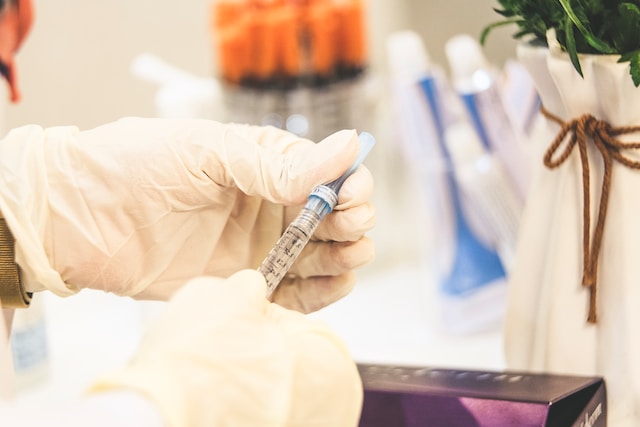
The Safety and Efficacy of Medical Weight Loss Injections: A Deep Dive
Medical weight loss injections have become increasingly popular as a non-surgical option for individuals seeking to lose weight. With the prevalence of obesity on the rise, many people are searching for safe and effective ways to shed excess pounds. In this article, we will explore the safety and efficacy of medical weight loss injections. Addressing common questions and concerns that people have. We will also provide specific answers and solutions, linking to credible medical resources for further information.
What are Medical Weight Loss Injections?
Medical weight loss injections are a type of treatment that involves injecting specific substances into the body to promote weight loss. These injections typically contain a combination of vitamins, minerals, and other compounds. They work together to boost metabolism, suppress appetite, and increase energy levels. Some of the most common types of medical weight loss injections include:
- Lipotropic injections: These injections contain a blend of vitamins, minerals, and amino acids that help to break down fat in the body and improve liver function.
- HCG (Human Chorionic Gonadotropin) injections: HCG is a hormone that is naturally produced during pregnancy. In weight loss treatments, it is used to suppress appetite and promote the breakdown of stored fat.
- B12 injections: Vitamin B12 is essential for proper metabolism and energy production. B12 injections can help to boost energy levels and support weight loss efforts.
Are Medical Weight Loss Injections Safe?
When administered by a qualified healthcare professional, medical weight loss injections are generally considered safe. However, as with any medical treatment, there are potential risks and side effects that should be considered. Some of the most common side effects associated with medical weight loss injections include:
- Injection site reactions: Redness, swelling, and pain at the injection site are common but usually subside within a few days.
- Allergic reactions: In rare cases, individuals may experience an allergic reaction to the ingredients in the injection. Symptoms can include hives, difficulty breathing, and swelling of the face, lips, tongue, or throat.
- Nausea and digestive issues: Some individuals may experience nausea, diarrhea, or stomach cramps after receiving a weight loss injection.
It is important to discuss any pre-existing medical conditions or concerns with your healthcare provider before receiving medical weight loss injections. They can help to determine if this treatment is appropriate for you and can provide guidance on potential risks and side effects.
For more information on the safety of medical weight loss injections, consult the following resources:
How Effective are Medical Weight Loss Injections?
The efficacy of medical weight loss injections can vary depending on the individual and the specific type of injection used. Some studies have shown promising results, while others have found little to no effect on weight loss. It is important to note that medical weight loss injections should be used in conjunction with a healthy diet and regular exercise for optimal results.
For example, a study published in the International Journal of Obesity found that HCG injections, when combined with a low-calorie diet, resulted in significant weight loss and a reduction in hunger levels. However, other studies have found no significant difference in weight loss between individuals receiving HCG injections and those receiving a placebo.
Similarly, lipotropic injections have shown mixed results in terms of efficacy. Some studies have found that these injections can help to promote weight loss and improve liver function, while others have found no significant effect.
Ultimately, the effectiveness of medical weight loss injections will depend on the individual and their commitment to a healthy lifestyle. It is important to work closely with a healthcare professional to develop a comprehensive weight loss plan that includes a balanced diet, regular exercise, and appropriate medical interventions.
Who is a Good Candidate for Medical Weight Loss Injections?
Medical weight loss injections may be a suitable option for individuals who have struggled to lose weight through traditional methods, such as diet and exercise alone. They may also be appropriate for those with certain medical conditions that make weight loss more challenging, such as hypothyroidism or polycystic ovary syndrome (PCOS).
However, medical weight loss injections are not a one-size-fits-all solution and may not be appropriate for everyone. It is important to consult with a healthcare professional to determine if this treatment is right for you and to develop a personalized weight loss plan that addresses your specific needs and goals.
Conclusion
In summary, medical weight loss injections can be a safe and effective option for some individuals seeking to lose weight. However, it is important to approach this treatment with realistic expectations and to understand that it should be used in conjunction with a healthy lifestyle for optimal results. By working closely with a healthcare professional and following a comprehensive weight loss plan, individuals can increase their chances of achieving and maintaining a healthy weight.
Related Article: Finding the Best Medical Weight Loss Clinics: Tips and Recommendations



